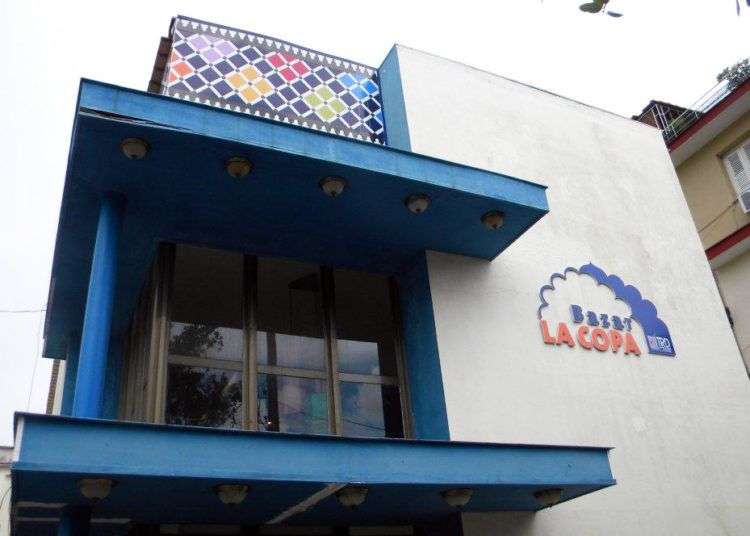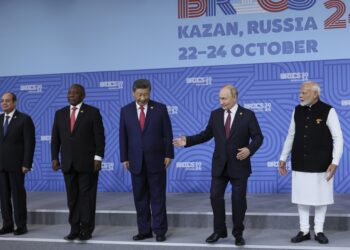How to protect the identity of a business? What are the guarantees on the exclusiveness of rights regarding its identity? How to “coin” the property of an invention, a model or a certain service? This and other similar issues on industrial property are barely known by the Cuban self-employment sector.
Registered trademarks are a title that grants exclusive rights to use a sign for the identification of a product or a service in the market.
Regarding the registration of brands, Cuban self-employed workers have not been left behind. According to some data provided by the No. 314 issue of the Official Bulletin by the Cuban Industrial Property Office (OCPI by its acronym in Spanish) published in last June, 53 applications for registering Brands and Commercial Names had been made till that date. That number includes applications not only by foreign and national legal entities but also by natural Cuban citizens.
The self-employment sector, with 23 applications –18 from the capital and another five from the rest of the country–, represents 43% of the total, leaving behind applications submitted by the State –barely 35,8% (19)—and, finally, applications by foreigners –20,7% (11).
However, there are no applications for registering Slogans, Emblems or Business Signs by natural citizens. Similarly, the Bulletin records two applications for registering industrial models, and just one application for registering an invention.
In this regard, Industrial Property Official, MSc. María Amparo Santana Calderín, noted that “self-employed workers are more familiar with the registration of trademarks and invention patents within the field of industrial property; yet there are other tools as to patents such as utility models, drawings, industrial designs, outlines or integrated circuit topographies that could contribute with the development of businesses”.
Specialized services offered by OCPI
The protection of drawings and industrial design is still scarce. On the occasion of the last graduation from the Higher Institute on Design (ISDI by its acronym in Spanish), the Department of Inventions, Drawings and Industrial Models pointed out that “even though there are laws supporting the protection of new industrial designs in the national territory, national designers don’t frequently use it (…). It is worrying to know there are some of our designs that go out in the market and are vulnerable to be copied or imitated and designers are not able to demand lawful rights because they are not aware these can be protected not only by trademarks. At present, OCPI is making arrangements for working closer to the National Design Office (ONDI by its acronym in Spanish)and ISDI to make the most of open spaces for designers with the purpose of increasing their culture in terms of industrial property, so that they are familiar with the benefits of protecting their work through trademarks and drawings and industrial models so that they can chose what’s best for them and thus legally prevent their work from being copied”.
Copyright, as per the terms of the International Declaration of Copyright, is understood as “any property that, in common agreement, is considered to be intellectual and worthy of protection, including scientific and technological inventions, literary or artistic productions, distinctive brands and signs, drawings and industrial models and geographic indications”.
Santana Calderin explained that in Cuba the treatment to the issues of Copyright have been divided mainly in two: on one hand, Royalties, in charge of the National Royalties Center (CENDA by its acronym in Spanish), and on the other hand, Industrial Property, in charge of OCPI and ONDI.
Sense owners
Industrial Property is a source of incomes: though it is considered an intangible asset, its economic value is apart from the price of the product or service it stands for, it is in constant development depending on its success, acceptance and leadership in the market; that’s the reason why, copyrights are “exclusive”, given they ban their exploitation by third parties, without express agreement by the owners.
It is perfect, the rights obtained after registering an invention or a utility model can be taken as economic assets in view that they can be rented, licensed, sold or exchanged.
A simple look on this issue in different nations in the region would reveal the existence of projects to bring small entrepreneurs closer to matters of copyright.
According to Santana Calderin, in Cuba, Copyright issues were put aside for many years, which resulted in regrettable events for the Cuban State with some of its most prestigious trademarks, like Havana Club. “Fortunately, that has gradually changed, professionals have been trained in each aspect on Copyright and conditions for the rising private sector of the economy to be able to accessto the necessary information to manage and register its trademarks, patents, inventions, etc. in our offices”.
The Cuban law firm LEX S.A. promotes strategies and legal services especially for self-employed workers in need of legitimizing their businesses and stand out in the national market. Besides, it relies on qualified personnel to offer advice for those in the self-employment sector who whish to register their trademark and commercial slogan.
LEX S.A.’s specialists explained during an interview for the Cuban News Agency that it is possible to protect a patent or an industrial model as well as to create a logo with enough distinction and commercial image in order to stand out from the rest in their fields, though these are not the most popular services. Similarly, they can also protect Royalties or related litigations.
In the same way, OCPI has created strategies for the promotion of topics related to Copyright, which range from abundant publication of information on their website to the creation of a training plan for the Bodies of the Central Administration of the State, in which, those natural citizens interested can be discretionally enrolled in.
Last but not least, it is necessary to keep in mind that there is a lot of legal ground on the subject. Cuba is member of a considerable part of international instruments on this matter and there is a large number of Decree Laws and Resolutions that explicitly state the right of natural citizens to access the information on Industrial Property, as well as the steps to be taken in order to properly register their creations.
As official Maria Amparo noted for OnCuba, there have been cases of franchises and there has been an increase of legal litigations, which reveals the will to put these rights into practice, but these figures don’t represent the majority in the self-employment sector. Though there are pioneer private businessesin terms of registration of trademarks, in most cases they are not aware of the procedures to follow or the importance of its registration.
In an interview with mechanical engineer, Daniel Pita, director of BauMec, a repair shop for modern cars, located in 25th Avenue between F and G streets, in Vedado: “BauMec has always been marked by its excellence, every decision we have made has been focused on guaranteeing our services become a point of reference. That’s why, our brand has been registered in OCPI and we are proud to show it on our signs”.
Nonetheless, random surveys carried out in ten private businesses in Old Havana, revealed that four of them had registered their brand at the OCPI, and one of them only talked about itssignificance for their development as self-employed workers.
Despite the objective conditions have been created and despite the interest of related institutions in this issue, perhaps it is convenient to assess the effectiveness of promotion strategies and if the initiatives oriented to educating the population on these matters have been enough. It is true that Industrial Property is still a mystery for a considerable share of its potential beneficiaries. In the meantime, others can take advantage not only of the prestige of certain businesses but also of the know-how collected.
Trademarks and commercial names
How to register a trademark?
In Cuba, all natural citizens and legal entities, national and foreign, in the full exercise of their legal capacity, must submit their applications to OCPI.
The registration procedure is charged in Cuban pesos for natural citizens and Cuban legal entities. Applications must include name and address of those interested, a list of products and/or services he wishes to protect and a reproduction of design, among other data of interest. In addition, the owner has the exclusive right to use his sign in mercantile and economic trafficking, which includes selling, offering and distributing products or services distinguished by that brand. He is also entitled to prevent or authorize third parties to use it by means of licenses, which act as a guarantee for the owner.
It is necessary to point out that national natural citizens can come to OCPI as explained above or through an Industrial Property Official.
Once applications have been submitted, trademarks are published 180 days after in OCPI’s Official Bulletin so that those interested can submit oppositions based on prior rights that may be affected.
OCPI will issue the acceptance or total or partial denial of registration after a year has gone by, starting on the application date. Then, the applicants will pay the rights for this service for the issuance of a Registration Certificate, which grants him exclusive rights for 10 years and can be renovated in successive terms.










